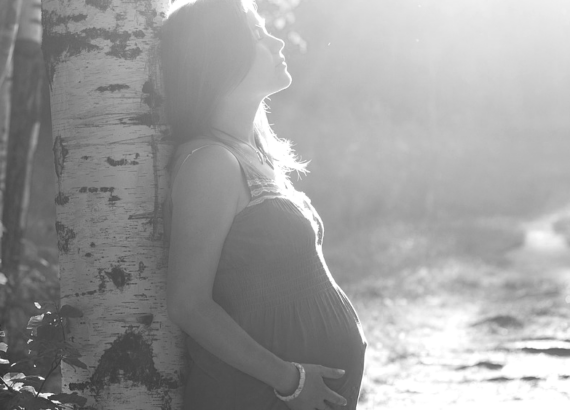Grief and Anxiety
Author: Paige Donnelly
Grief brings along a wide array of emotions. While grief can include anger, sadness, shock, denial, (and many more!), one of the major emotions that mourners experience is grief anxiety. Anxiety has become one of the more well-known and talked about feelings in our culture today. People can more easily identify with the general feeling of anxiety and are more likely to express it. However, where there is anxiety, there are other underlying emotions at play that we must dig deeper to uncover. Our team of skilled therapists at Mind Space Counseling is here to help you on this journey.
The Grief Anxiety Iceberg
Like many other feelings, anxiety can be compared to an iceberg. If we visualize an iceberg, we can only actually see the tip, which is just above the water’s surface. Below the surface of the water is the deeper emotions that cause the general feeling of anxiety.

Grief Related Feelings of Fear and Helplessness
The feeling of anxiety in those grieving can typically include a sense of fear and helplessness. Following the loss of his wife, author C.S. Lewis stated, “No one ever told me that grief felt so much like fear. I am not afraid, but the sensation is like being afraid. The same fluttering in the stomach, the same restlessness, the yawning. I keep on swallowing.”
Attachment Related Anxiety
The fear within this type of anxiety is comprised of attachment-related anxiety as well as the awareness of one’s own mortality. Attachment is ingrained in us at a young age and is responsible for our deep emotional bonds and connections with others. Attachment is originally developed between child and parent or caregiver and continues to impact how we relate to others in our relationships as adults.
If we are impacted by grief, it most likely has to do with having any kind of relationship or attachment to the deceased. With attachment-related anxiety, the mourner may have been very close with the deceased and is now concerned for their ability to care for themselves. They may also be worried about simply surviving without the deceased loved one. These thoughts might present as, “How am I going to continue or go on without them?”
Relationship Connections to Grief Anxiety
In relationships, we often experience positive feelings due to our emotional connections. Maybe your loved one was your go-to person when you had a tough day. Maybe there were activities you did together that brought you both joy.
The loss of how the loved one impacted your life is quickly taken away, oftentimes without any warning. Imagining a world without their presence and the effect that they had on you can be quite scary and difficult to imagine.
Aside from the feelings this relationship brought you, the loved one may have played a specific role in your life. Maybe they held certain responsibilities that you now must take on. Imagining these new roles and responsibilities without your loved one can also induce anxiety.

Awareness of Our Own Mortality
Anxiety during the grieving process may also stem from a heightened awareness of our own mortality as well as the mortality of others. This low-level awareness is always lingering in the back of our minds. It’s likely to come forward occasionally when we are reminded by upsetting situations that happen to those we are less close with.
This may be a scary medical diagnosis of a distant relative, a motor vehicle accident of a coworker you haven’t actually met, or the death of a celebrity you have been watching for years.
However, when we lose someone close to us, we realize how fragile life is on an even deeper level. Suddenly, once exciting activities can feel more dangerous and not worth the risk. Sometimes even the mundane daily tasks can make us anxious and worried that something might happen to us or to a loved one.
This type of anxiety is elevated if we experience the loss of someone we are especially close to. If your loved one died in a car accident, you might get nervous when driving or when other loved ones are on the road. It’s perfectly normal for this to elevate our anxiety, especially in the weeks to months following the death.

Grief, A Difficult Experience
Grief is a complicated and oftentimes an extremely difficult experience, the anxiety that can come along with it may slowly fade for some. Even as it fades, it’s common for the feelings to wax and wane over time. For others, the anxiety related to grief may continue to impact their daily life and might even worsen with time.
Grief Isn’t a Linear Process
One person’s grief experience can vary greatly from another’s. No matter what you might be experiencing, many of us can benefit from the guidance and compassionate witnessing of a grief counselor. Grief counseling can help mourners to better process their emotions, their grief experience, and assist in healthy coping along the way.
Attempting to avoid the feelings brought up by grief, or even trying to manage solely on our own can delay the grief process and make it increasingly difficult to work through later. Please don’t hesitate to connect with one of our North Carolina grief counselors today if you could use help along the way.
Get Started with Grief Counseling in North Carolina!
With the help of a grief counselor in North Carolina, you don’t have to walk through grief alone. Mindspace Counseling will help you start understanding grief and how it affects you. Follow these steps:
- Reach out to Mindspace Counseling
- Meet with one of our grief counselors
- Start processing your grief-related emotions and experiences with the support you deserve.
Other Services Offered at Mindspace Counseling in North Carolina
Grief therapy is not the only service we offer at our North Carolina-based therapy practice. We know that there are many other services that can help with mental health. We also provide anxiety treatment, EMDR, and EMDR intensive therapy. As well as postpartum mental health, and perinatal mental health counseling. In fact, we can help you virtually via online therapy in North Carolina and online therapy in Florida. Get connected with us today.




